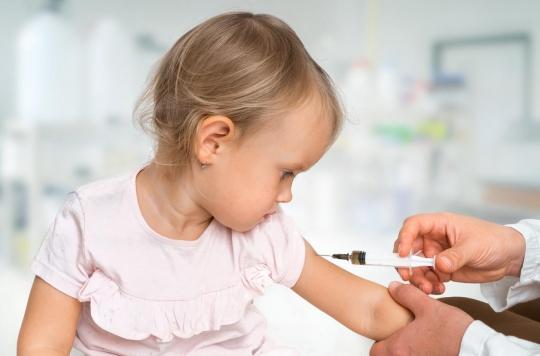According to a recent American survey, four out of ten parents say they are “likely” or “very likely” to change pediatricians if they follow unvaccinated children.

A month ago, the World Health Organization warned on the lack of vaccination coverage in children to the four corners of the planet. According to her, in 2018, nearly 20 million children did not receive vaccines that could prevent deadly diseases. While most of them live in poor or conflict-affected countries, young people in developed states may not be vaccinated because their parents openly refuse it.
In the event that their pediatrician would take care of such children, four in ten parents say they are “likely” or “very likely” to change it, according to a survey conducted by the University of Michigan and published this Monday, August 19. In addition, three out of ten parents believe that their child’s doctor should ask anti-vaccine families to consult elsewhere.
For this survey, researchers interviewed 2,032 parents of at least one child aged 18 or younger. They were thus able to observe that many parents were not aware of the attitudes of their pediatrician concerning unvaccinated children. While 39% of parents are certain that their doctor has a rule imposing all vaccines on children, 8% consider that they should receive at least some vaccines. For 15%, the pediatrician has no policy regarding vaccination, while 38% say they know nothing about the subject.
Opinions differ on the nature of the rules to be adopted
What’s more, for 6% of parents, their child’s pediatrician does not allow non-vaccinated people to use the same waiting room as the others, and 2% are sure that they have the right if they carry masks. Finally, 24% of respondents believe that the practice allows unvaccinated children to be in the waiting room with others without any restrictions.
Adults also differ widely on the nature of these rules and on whether they should be informed of the presence of unvaccinated children in their practice. For 17% of parents, a child who has not been vaccinated at all should not be able to go to the waiting room, while for 27% they should go there with a mask so as not to put the most vulnerable patients at risk. vulnerable. But for 28% of respondents, the medical practice should allow unvaccinated children to continue to consult without restriction.
Finally, about 4 out of 10 parents (43%) claim to want to be informed in the event that children are not vaccinated at all in their doctor’s office. In which case, 12% say they are “very likely” and 29% “somewhat likely” to change pediatricians for their child.
Risk taking for the most vulnerable patients
“Paediatricians strive to keep children healthy through regular monitoring and this includes encouraging families to follow recommended vaccination schedules. When a family refuses, it puts the healthcare professional in a difficult position” , explains Sarah Clark who conducted the study.
“A child who is not vaccinated at all is defenseless against dangerous and contagious diseases such as measles, whooping cough and chickenpox. Children who are not vaccinated can also transmit the diseases to other patients. This can be especially risky for children. vulnerable populations such as infants too young to be vaccinated, the elderly, patients with weakened immune systems or pregnant women.
Most of the time, doctors have discussions with parents to explain the importance of vaccinating children and to answer questions about possible side effects, recalls the researcher. “In addition to explaining how vaccines protect a child’s health, healthcare providers can also share information about why an unvaccinated child is exposing other children and patients to dangerous health risks,” says she.
Measles outbreak
And if in Western countries most parents tend to follow official recommendations regarding vaccines, the recent outbreak of measlesespecially in the United States and Europe, shows the need for adults to consider policies concerning unvaccinated children, analyze the researchers.
Remember that measles is an extremely contagious virus, capable of surviving for several hours in an area where a patient has coughed or sneezed. The latter can even spread it even before the appearance of symptoms. So when parents bring a child into a doctor’s office thinking they might have measles, they can expose many other patients to the disease, Clark explains.
“Primary healthcare providers need to think carefully about whether they should put policies in place to prevent their patients from being exposed to vaccine-preventable diseases, and then communicate those policies to all patients. of their practice,” she adds. And to conclude: “Any parent – and in particular parents of immunocompromised infants or children – should ask their child’s primary care provider about policies regarding unvaccinated children”.

.















